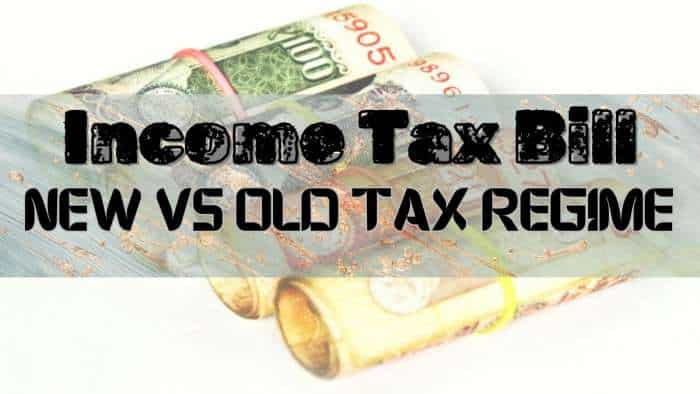NPS Tier II vs Hybrid Mutual Fund: Which is a better option for high returns in the short-term?
Both NPS Tier II and Hybrid Mutual Funds are great investment options if you are looking for higher return compared to traditional investment instruments. Selecting any option between the two should be based on your financial goals, investment horizon and risk tolerance.
)
Two popular options in India for building wealth and securing high returns are the NPS Tier II plan and Hybrid Mutual Funds. Both offer different sets of advantages. While NPS Tier II is a part of the National Pension System, hybrid mutual funds are managed by different banks and non-banking financial companies (NBFCs). If you are looking for higher return compared to traditional investment avenues these two could be suitable options.
Before investing in NPS Tier II or hybrid mutual funds it’s important to consider several factors like investment horizon, financial goal and risk tolerance. The investors must know that these two financial products are directly linked to market volatility.
What is the NPS Tier II plan?
NPS Tier II is a voluntary savings account for your short-term needs within the National Pension System (NPS). One needs to have an NPS Tier I account to open a Tier II account.
Some of the advantages of NPS Tier II plan are:
1. Cost-efficiency: NPS Tier II doesn't charge high fees for fund management and hence, it's a cost-effective choice.
2. Digital management of transactions: You can manage all transactions via digital mode through quick access to your NPS Tier II funds just within a couple of days.
3. Flexibility and liquidity: There's no lock-in period, which makes it great for short-term goals. You get the flexibility of withdrawing your investments whenever you want. NPS Tier II investment offers enhanced liquidity compared to other similar investments.
4. Diverse Investment Choices: To meet your specific financial goals, you can use an NPS Tier II plan to invest in equities, corporate bonds, government securities, and other such investment options.
What are Hybrid Mutual Funds?
Hybrid mutual funds are a mutual fund variant that combine the potential of equity and debt mutual funds and mitigate the risks by investing in equity, corporate bonds and even gold.
The various advantages of hybrid mutual funds include:
1. Diversification of portfolio: Investing in a hybrid mutual fund allows you to invest in stocks, corporate bonds and gold.
2. Risk Management: Hybrid mutual funds invest your money in different categories to help you mitigate potential risk according to your risk tolerance.
3. Tax Benefits: Certain hybrid mutual funds come with tax benefits like concessional tax rate on both short-term and long-term capital gains.
NPS Tier II vs Hybrid Mutual Fund: Which is a better option?
The decision between NPS Tier II and hybrid mutual funds should be based on your financial goals, risk tolerance and the time period you want to remain invested. Therefore, if you need quick access to your money and low costs, NPS Tier II could be ideal for short-term goals. On the other hand, if you want a diverse range of investment options, including equity and debt, hybrid mutual funds might be a better fit for your long-term wealth-building plans.
Get Latest Business News, Stock Market Updates and Videos; Check your tax outgo through Income Tax Calculator and save money through our Personal Finance coverage. Check Business Breaking News Live on Zee Business Twitter and Facebook. Subscribe on YouTube.
RECOMMENDED STORIES

New Tax Regime Slabs: Is your annual salary Rs 12,87,500? Do you need to pay tax on Rs 12,500 or Rs 12,87,500? See calculations to know

SIP, One-time Investments for Retirement Planning: Want to get Rs 60,000 monthly income at 60? Know how much you need to invest if you are 25, 30, 35, or 40 years old?

Top 7 SBI Mutual Fund MFs by One-time Investment Return: Rs 1 lakh has grown to Rs 2.85 lakh-3.48 lakh in 5 years; see list, compare SIP returns

SBI Senior Citizen FD Rates: Know what PSU bank is giving on Rs 1,50,000, Rs 2,50,000, and Rs 3,50,000 investments in fixed deposits

SBI 444-day FD vs SBI 400-day FD: Which can give you higher maturities on Rs 2 lakh, 4 lakh, and 6 lakh investments?

Income Tax Calculations: What will be your tax liability if your salary is Rs 8 lakh, Rs 14 lakh, Rs 20 lakh, and Rs 26 lakh?

Dearness Allowance (DA) Calculations: Is your basic monthly salary Rs 25,500, Rs 35,400, or Rs 53,100? Know how much DA will you get at different rates
12:32 PM IST










 Hidden charges on SBI ATM cards: Is your money disappearing quietly?
Hidden charges on SBI ATM cards: Is your money disappearing quietly? Latest personal loan interest rates for SBI, PNB, Bank of Baroda, HDFC bank and ICICI bank
Latest personal loan interest rates for SBI, PNB, Bank of Baroda, HDFC bank and ICICI bank 8 post office investment schemes that offer over 7% guaranteed return
8 post office investment schemes that offer over 7% guaranteed return Millennials turning towards new-age investment instrument fractional investing: Report
Millennials turning towards new-age investment instrument fractional investing: Report  Income Tax: How are e-filing and e-payment of taxes different? Know details here
Income Tax: How are e-filing and e-payment of taxes different? Know details here